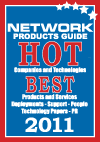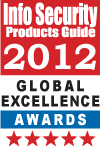This is part one in our Q&A series on SSL VPNs.
Q: When SSL VPN followed IPsec VPN into the world of remote access, what was its initial purpose? How did it differentiate?
Rainer Enders: SSL VPN was introduced to address various shortcomings of IPsec VPN, such as usability, interoperability and scalability. In particular, the IPsec client-based approach was regarded as a process that was difficult to manage from both administrators’ and users’ perspectives.
When SSL was initially introduced, it was considered a client-less technology. The terminology “client-less” was created to differentiate from the IPsec client-centric approach. Obviously, SSL VPN is not client-less, as a client is still involved and is typically in the form of a web browser. Therefore, the key differentiator between the two approaches is that the SSL VPN client comes pre-installed on all OS platforms in the form of the browser, whereas IPsec VPN is separate software that, in many cases, must be installed.
Q: When should companies use a browser-based SSL VPN for secure remote access? How does this differ from applications of a Thin Client SSL VPN?
Rainer Enders: When deploying SSL VPN, great care must be taken to implement and secure the digital signature architecture. Web proxy and thin client SSL are restricted to certain access modes, and as such, should only be used in projects with limited scope with compliant access environments. SSL VPN should not be used for high security environments, as there are more points of attack and vulnerabilities.
Rainer Enders is CTO, Americas, at NCP engineering.
Stay tuned for more expert insight on SSL VPNs later this week from Joerg Hirschmann, CTO at NCP engineering GmbH.






 network
network 
 Bridge Awards
Bridge Awards
Q&A On SSL VPNs, Part Two: Joerg Hirschmann
Posted: February 7, 2013 in Expert Q&A, Industry Commentary, Rethink Remote Access, SSL, VPNTags: hybrid IPsec/SSL gateway, IPsec, remote access, SSL, VPNs
This is part two in our Q&A series on SSL VPNs. Earlier this week, we shared insight from Rainer Enders, CTO, Americas at NCP engineering, on the inception of SSL VPN and its key differentiators.
Q: What are the core strengths of SSL VPN, and when might enterprises choose to go with this protocol over IPsec VPN?
Joerg Hirschmann: The pre-installed, SSL approach is ideal for situations in which one doesn’t require transparent connections for secure remote access. For instance, SSL VPN is an optimal solution when enterprises must grant limited access to external associates or partners needing connections only to specific applications (e.g. web-based) or administrative access to specific machines through RDP or SSH sessions. However, the ideal secure remote access solution takes a hybrid approach combining the strengths of both SSL and IPsec.
Q: What about choosing to go with software solutions versus hardware appliances?
Joerg Hirschmann: A software solution is the ideal fit for a virtualized central environment, whereas appliances are usually a better fit in branch offices or a smaller environment without virtualization in place.
If you have any questions on VPNs, the IPsec and SSL protocols or anything else related to secure remote access, send them to editor@vpnhaus.com.
Joerg Hirschmann is CTO at NCP engineering GmbH.
Share this: